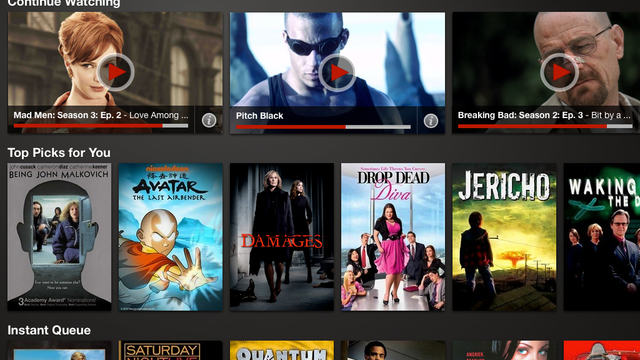Ah, Netflix — a haven for antisocial escapists and the blight of anything even mildly productive. No matter who you are, there’s a good chance that at some point in your life, Netflix has suggested a movie that brought you hours of entertainment and seemed to come straight from the very darkest shadows of obscurity. So how does Netflix find these meticulously tailored gems?
More
How To Stream Netflix And Hulu In Australia, And Other Stuff Geoblockers Don’t Want Known
[clear]
Using metadata, Netflix analysts are able to find all sorts of similarities between movies and shows, such as year made, director, genre, rating, etc. But how that metadata comes into existence is the truly fascinating — and apparently painstaking — part. As Xavier Amatriain, Netflix’s engineering director, told Wired:
We have more than 40 people hand-tagging TV shows and movies for us. These are typically freelancers who do this to supplement their income. All of our analysts are TV and film buffs, and many have some experience working in the entertainment industry. They obviously have personal tastes, but their job as an analyst is to be objective, and we train them to work that way.
The powers that be at Netflix are also able to see through your lies. The five-star rating you gave that obscure French art flick from the 60s? Yeah, they know you didn’t necessarily watch that — or at least, couldn’t stay awake long enough to watch it. So they make sure to read between the lines. Carlos Gomez Uribe, Vice President of product innovation and personalisation algorithms, tells Wired:
People rate movies like Schindler’s List high, as opposed to one of the silly comedies I watch, like Hot Tub Time Machine. If you give users recommendations that are all four- or five-star videos, that doesn’t mean they’ll actually want to watch that video on a Wednesday night after a long day at work. Viewing behaviour is the most important data we have.
We know that many of the ratings are aspirational rather than reflecting your daily activity. A lot of people tell us they often watch foreign movies or documentaries. But in practice, that doesn’t happen very much.
The process is wonderfully complex for something you so rarely think about — but then, that usually means it’ss working. You can read about the rest of how Netflix finds your soon-to-be movie favs over at Wired. [Wired]
